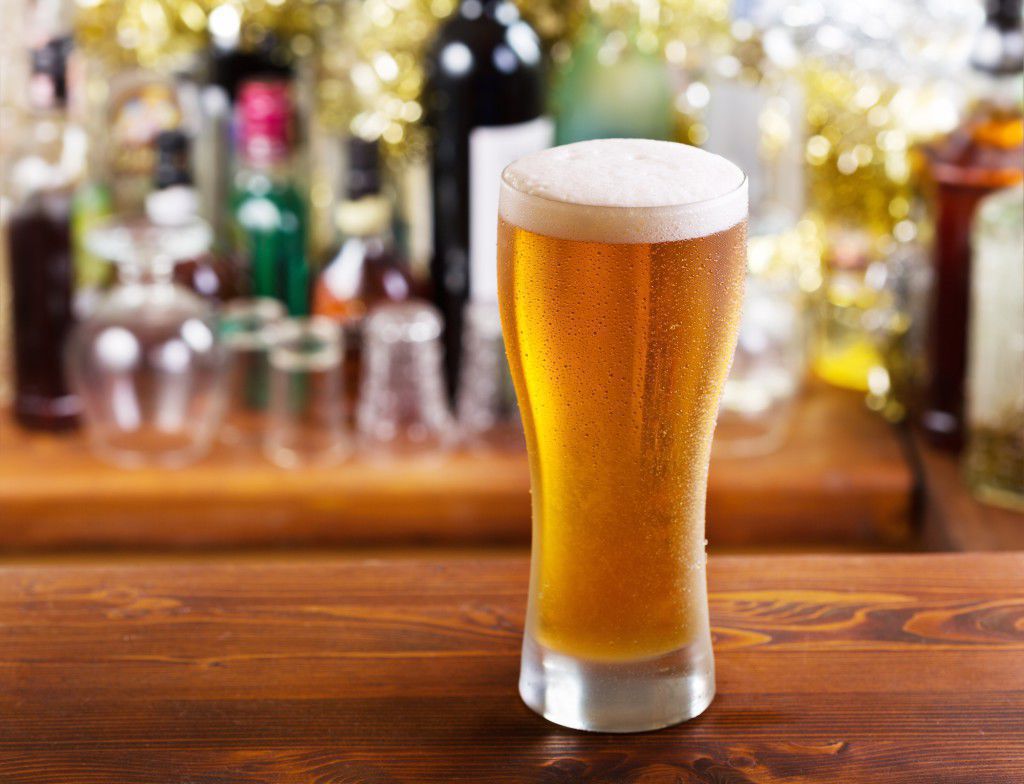How did you get your surname?
Do you know how you got your surname?
It is regarded as a tradition for women to take their husband’s surnames when they get married in Britain. It’s also the tradition for men to always be Mr but women will be Miss until they’re married and become Mrs. So if Miss Young married Mr Smith, she would become Mrs Smith. A survey in 1994 showed that 94% of British women decided to take their husband’s surname when married. This ‘tradition’ is no longer as common today, with many women choosing to keep their own surname, or creating a double-barrelled surname.
In Poland many women choose to take their husband’s surname when they get married. However, they have masculine and feminine endings to their surnames. My surname – Koszykowska – like many Polish names ends in ‘ski’ for males or ‘ska’ for females; my dad follows this rule, as does one of my uncles, but the other uncle keeps its simple by using ‘ski’ for his family. It’s thought that originally Polish surnames ending in ‘ski’ or ‘cki’ came from the places where people lived; so if you lived in Wola you would become Wolski.
In Iceland the family name reflects the immediate father’s name or in some cases the mother’s. This is a more complex way of creating a surname compared to the British tradition. If Jón Einarsson had a son called André, André’s surname wouldn’t be Einarsson; instead it would be Jónsson. This is a combination of his father’s first name ‘Jóns’ (the s indicates that he is literally Jón’s son) and the Icelandic word ‘son’. If Jón had a daughter her surname would be Jónsdóttir, dóttir being the Icelandic word for daughter. In some cases they may use the father’s middle name, or their grandfather’s name.
In Spain it’s the norm for children to take the surname of the father and their mother’s maiden name to form one surname. For example if Alejandro López marries Daniela Rodriguez, their child Paula will take the father’s surname López as their second name and their mother’s Rodriguez as their third; Paula López Rodriguez. Then it gets slightly more confusing: if Paula marries she won’t change her surname; instead she will add it to her name. For example, she marries Álvaro Arroyo; her name will become ‘Paula López Rodrigues de Arroyo’. This continues when Paula has children, her mother’s surname will be dropped from their surnames to become ‘López Arroyo’.
Is there an interesting story behind your surname? Let us know!
Alex
The language of beer
‘Two beers, please’ is perhaps one of the most useful phrases you can learn at the start of your language-learning journey (and, incidentally, one of the first items you learn with uTalk Essentials). You’ve made it to the country, you’ve struggled with buses from the airport and fought with taxi drivers over the fare. Now you’ve dumped your luggage and definitely deserve a nice, cool, refreshing beer, so into the pub you go.
There’s just one problem.
If you go into a pub in the UK and ask for a beer, there will be a follow-up question: Is that ale or lager?
The correct answer, by the way, is always ale. Ale, ale, ale, especially if you want to discover a little bit of Northern European culture. We do have lagers here too, of course, but ale is the more traditional drink, available in an enormous range of tastes and colours, served in short, squat pints (or tankards, if you’re lucky), as opposed to the tall spindly glasses that lager generally comes in.
But what is the difference, and why do you need to know about it?
Well, they’re two very different drinks. Very different! Lager is fizzy, cold and has a light flavour, whereas ale is flat and heavy (in fact, in Aberdeenshire, instead of ordering a pint of ale you order a pint of ‘heavy’) and definitely not as cold as lager. Ale drinkers rarely switch to lager and vice versa.
Why choose ale?
The great thing about ale is that there are thousands and thousands of different types, and any good pub will have at least four different ones on tap at any time (if they have fewer than that, just walk out and go somewhere else). You can usually ask to try one before committing to a full pint, as tastes can vary rather wildly in ale, from super-hoppy bitter numbers (again, ‘a pint of bitter’ will get you a pint of ale, if you want to experiment with English colloquialisms), to sweet, chocolatey types and light, refreshing ‘session’ ales. Depending on the region (and Kent, Norfolk and Cornwall are but three UK regions with a strong ale tradition), you might start to spot certain recognisable tendencies, or again you might find a brewery you like and be forever wedded to their creations. For me, anything by Skinners or Sharp’s wins hands-down over anything else on offer.
Still confused? We found this handy infographic by popchartlab that breaks it all down…
Got any thoughts on the different types of beer available in different countries? Do you have a preference for ale or lager? Let us know!
Nat
A Hungry Conundrum
Learning a language is one thing… but what happens when that language changes depending where in the country you happen to be standing? That’s the subject of today’s blog post from Kelly – if you’ve encountered any of these regional confusions, we’d love to hear about them!
When is a roll a cake?
Before you break out your finest John Shuttleworth impression in fear of pudding before main, there is actually a very good answer to this.
Because unless you’ve never ventured further than your local shops and the thought of travelling to the next borough, town or neighbourhood fills you with a sense of dread, you’ve probably noticed that local words for things vary.
We don’t necessarily mean profound things like finding yourself receiving a chocolate biscuit when you asked for a custard cream (no complaint there really but still, confusing), but honestly, there is a minefield of potential outrage and disappointment out there if you’re not sure what you’re asking for.
Be careful where you ask for a ride, for example.
Back to our conundrum.
Escaping the Smoke
 When I left that there London many years ago from the pigeon-infested Victoria Coach Station on a one-way journey to Yorkshire, I’m pretty sure in my possession was a copy of Kerrang, a selection of confectionary, and a bread roll containing cheese and pickle.
When I left that there London many years ago from the pigeon-infested Victoria Coach Station on a one-way journey to Yorkshire, I’m pretty sure in my possession was a copy of Kerrang, a selection of confectionary, and a bread roll containing cheese and pickle.
Somewhere along the M1 that innocent-sounding sandwich was eaten, but had it remained intact, a magical thing would have happened to it. For on the journey North, it would have transformed from a roll, to a batch, to a cob, perhaps to a scuffler (I forget the exact National Express route…) before finally settling on being a breadcake.
In Britain, even wheat-based products have identity crises.
How do you say…
English is a diverse language for both native and non-native speakers alike, but think how much more embarrassing it is for a native speaker not being able to order something in their own country in their own tongue. We normally reserve such ridicule for when we travel abroad unprepared, in the arrogant but not-so-naive knowledge that English is spoken everywhere. But on our own doorstep, a quick weekend away can mean an unwanted education in local colloquial vocabulary.
Perhaps it would be easier to stick to the tourist move of pointing at the menu and blinking mutely.
 Another area of confusion could be the names for mealtimes. There is a fond memory of a misunderstanding over tea and dinner time. An offer of tea to a friend was met with an expectation of milk, sugar, and possibly biscuits, but when the option presented was tuna and sweetcorn, it was rapidly declined. With a horrified expression that said, ‘who are you people? What are you doing to the sanctity of the cup of tea???’, a friendship was on the brink. Because breakfast, lunch and dinner can also be breakfast, dinner and tea, depending where you are in our humble isle. (The tuna and sweetcorn was for a jacket potato, in case you were wondering).
Another area of confusion could be the names for mealtimes. There is a fond memory of a misunderstanding over tea and dinner time. An offer of tea to a friend was met with an expectation of milk, sugar, and possibly biscuits, but when the option presented was tuna and sweetcorn, it was rapidly declined. With a horrified expression that said, ‘who are you people? What are you doing to the sanctity of the cup of tea???’, a friendship was on the brink. Because breakfast, lunch and dinner can also be breakfast, dinner and tea, depending where you are in our humble isle. (The tuna and sweetcorn was for a jacket potato, in case you were wondering).
And another thing…!
While we’re on our home-away-from-home soapbox, can we take this opportunity to complain about the options available for a ‘pattie’ in your local fish and chip shop? Because again, depending on where you go, this could be fish, potato, fish and potato, potato in a mixture resembling bubble and squeak… There are probably more variations too, and one place we really don’t want to be confused is our chippy. Next you’ll be debating if the perfect side is mushy peas, curry sauce or gravy, and it’s all too delicate a subject for us to deal with without serious, in depth thought. To quote Hot Pie, “you cannot give up on the gravy.”
See? Now look what’s happened. We’re hungry and we want pie. But when is a pie not a pie?
That’s it. Time for a pub lunch.
Wetherspoons, anyone?
Kelly
Che dice la nostra cultura quotidiana di noi?
Today we’re excited to share our first ever bilingual post, written by Lucy, who’s just returned from four months in Rome as part of her university studies. In this post, she talks about a few typical Italian habits she noticed during her time in the city and some of the (slightly surprising) questions she had to answer about British culture.
Don’t speak Italian? There’s an English translation below. And if you’d like to join the conversation, you can do so in the comments or on Twitter – see the end of the post for details.
Benché esistano delle centinaia di diverse abitudini italiane, dal nord al sud, dalle montagne alle coste, almeno si trova una percettibile concordanza di “modi di fare” di base che abbraccia il paese: si mangia la pasta ogni giorno, si offre l’opinione se richiesto o non, e non si telefona mai durante l’ora di pranzo (entro le 1300 e le 1500). Non essendo italiana me stessa, trovavo un po’ strano queste regole seguite persino dai giovani come se fossero ordinate dal Papa. Era solo quando mi sono resa conto che sono imposte invece dalle matriarche che iniziavo a capire le sue importanza. C’è una convivialità e un autentico rispetto per il comportamento che insieme danno un metodo alla follia.
Cercavo di integrarmi bene e cordialmente in queste situazioni, e mi piaceva molto imparare questi “si fa” e “non si fa”. Gradualmente mi abituavo a tenere lo sguardo durante il brindisi, a rivolgermi ai vecchi con “Lei” e non “tu”, e di avere pazienza quando facendo una fila perché non si sa mai quanto lungo sarebbe.
Una delle gioie dell’anno Erasmus e che s’incontra delle persone non solo da diversi paesi ma di varie origini, e si tocca di spiegare le sue proprie radici. Qualche volta è più difficile che abbia mai pensato. Vi lascio una manciata di domande che mi capitavo di rispondere durante le 4 mesi che ho passato in Italia:
Perché gli inglesi mettono la moquette dappertutto nelle case, e poi mettono sopra i tappetti?
Questo mi ha sorpreso perché mi chiedevo quasi ogni giorno il ragionamento dietro la mancanza della moquette nell’appartamento che stavo affittando. Storicamente indovino che fu una mostra di stravaganza perché gli sconti per pulirla dovettero essere esorbitanti. Potrebbe essere anche per aggiungere un po’ di calore nelle stanze.
Perché non apprezzate il vino invece di berlo troppo a causa dei giochi di bevanda?
Sono consapevole della riputazione che noi inglesi abbiamo per l’abuso dell’alcool, e a dire la verità, mi vergogna di questo nostro status mondiale. Pero, difendo questa cultura solo un’iota per porre che almeno non abbiamo paura di essere scemi, e questa propensità gli italiani si manca.
E la pioggia…?
Gli italiani che incontro sembrano di avere una vera inquietudine per la mia salute quando imparano che piove più di una volta alla settimana in Gran Bretagna, anche durante l’estate. Ho anche qualche amico italiano che ha sinceramente basato le scelte di università sul clima. Quando si viene da un paese dove il sole brilla nell’estate e la neve cade nell’inverno, scommetto che sarebbe difficile immaginare qualsiasi altra realtà, ancora meno la timorosa pioggia!
Alla fine del mio soggiorno in Italia, avevo la sicurezza di dare direzioni a una taxista con attenzione risoluta, e di rifiutare con cortesia le proposizioni di una vecchia sull’autobus di una cena con la sua nipote (chi tra l’altro sta studiando per diventare medico). Pero, al momento in cui qualcuno mi dà un pezzo di frutta, non sarò mai in grado di mangiarla con le posate, mi dispiace. Certe consuetudini naturalmente resteranno per sempre entro il paese, ma vi consiglio, ansi vi sfido di immergetevi nella cultura italiana e di imparare qualche maniera nuova – vi prometto che vi farà sorridere!
Avete scoperto un’abitudine intrinsecamente italiana che vi è piaciuto mentre stavate in Italia? Condividerlo con noi, lasciando un commento, oppure su Twitter @EuroTalk #abitudineitaliana
What does our everyday culture say about us?
Although there are hundreds of Italian mannerisms, from north to south, whether in the mountains or at the coast, there is a distinguishable way of doing things that brings the country together: they eat pasta every day, they offer their opinion whether asked for or not, and they never phone anyone at lunchtime (1pm-3pm). Not being Italian myself, I found these rules, followed by young and old alike as if handed down by the Pope, a little difficult at first. It was only when I realised that they were actually imposed by the head of the family (the matriarch) that I began to understand their importance. This culture of conviviality, backed by a genuine respect for courtesy, offers a method to the madness.
I tried my best to integrate myself in these situations, and I really enjoyed learning the “do’s” and “don’ts”. Gradually I got used to looking someone sternly in the eye whilst clinking glasses for a toast, to using the third person singular when addressing someone older than me, and to keeping my patience when queuing for anything, because you can never know how long you’ll be waiting.
One of the many joys of an Erasmus year is that you meet people who are not only from different countries but varied backgrounds, which means you are also tasked with explaining the reason to your rhyme. This is often harder than you’d have ever thought. Here are a few questions that I had to reply to during my four months in Italy:
Why do English people put carpet everywhere in the house, and then put rugs on top?
This question really surprised me because I’d been wondering why there wasn’t any carpet to be seen in the apartment I was living in. I guess that historically, carpet was a demonstration of extravagance because the cost of cleaning them would have been extortionate. It could also be because carpet adds warmth to a room.
Why don’t English people appreciate wine instead of drinking too much of it (for example in drinking games)?
I’m aware of the reputation that us Brits have for abusing alcohol and to tell you the truth, our world-renowned status is embarrassing. However, I’ll defend our drinking culture just an iota by proffering that at least we’re not afraid of looking a bit silly every once in a while, which is a propensity that Italians seem to lack.
And what about the rain…?
Italians that I have met seem genuinely worried for my health when they learn that it often rains more than once a week in the UK, even in the summer. I have a couple of Italian friends who have even based their university choices on the weather. I guess when you come from a country where the sun shines in the summer and the snow falls in the winter, it’s would be pretty difficult to imagine anything different, much less the infamous rain!
At the end of my stay in Italy, I had acquired the confidence to give firm directions to a taxi driver, and to politely decline offers from old ladies on the bus to have their grandson (who as it happens studies medicine) take me out to dinner. However, I’m afraid to say that if someone were to hand me a piece of fruit, I still wouldn’t ever be able to eat it with a knife and fork. Some customs will obviously stay forever within a country, but I recommend or even challenge you to immerse yourself in Italian culture and to learn a new quirk – I promise it’ll make you smile!
Have you discovered any fun intrinsically Italian habits? Share them with us by leaving a comment, or on Twitter @EuroTalk #abitudineitaliana
Lucy





